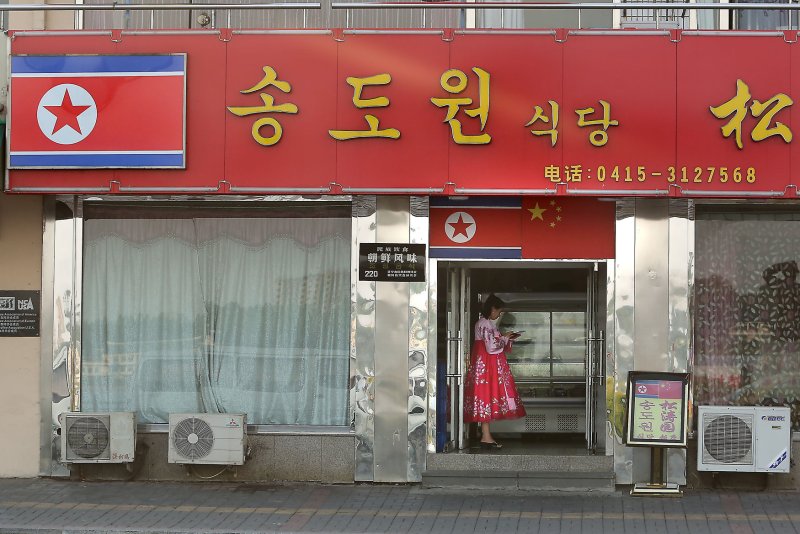North Korean workers in China, including restaurant staff, have been ordered to return home, according to a Japanese press report. File Photo by Stephen Shaver/UPI |
License Photo
Nov. 10 (UPI) -- North Korea may have ordered about 170,000 of its workers overseas to return home, following an international ban against its labor force in neighboring China and Russia.
The mandate comes at a time when sanctions may be causing new pressure on North Korea and "potentially with their military," according to the U.S. State Department.
The Asahi Shimbun reported Friday the order from the Kim Jong Un regime applies to all laborers in China and Russia, including the 120,000 workers in China's factories and North Korean restaurants in China.
Russia also retains an active North Korean workforce of about 50,000, according to the report.
North Korean workers in the border city of Dandong may have already left, in a move that demonstrates that North Korea is either one step ahead of Beijing and Moscow in removing its citizens, or coordinating with host governments following the adoption of tough new sanctions at the United Nations Security Council.
The departure of North Korean workers could take a bite out of the country's foreign currency earnings.
According to U.S. Secretary of State Rex Tillerson on Thursday, the latest embargoes are "creating some stress within North Korea's economy and with some of their citizens and potentially with their military."
Some analysts have described sanctions against North Korea workers as a double-edged sword.
While workers increase the regime's revenue, their exposure to the outside world could ultimately challenge or undermine the authority of the North Korean leadership.
More North Koreans are gaining knowledge of the outside world, but those who defect continue to face grave dangers in China, where repatriation is still common.
South Korean newspaper Kukmin Ilbo reported Friday a group of five refugees were repatriated from Baishan, Jilin Province, after being detained by Chinese authorities.
A mother of some of the forcibly repatriated refugees, who has resettled in Seoul, told the Kukmin she blames herself for their plight.
"I do not know how many years they will spend in political prison camp," said the woman, who asked not to be identified.















